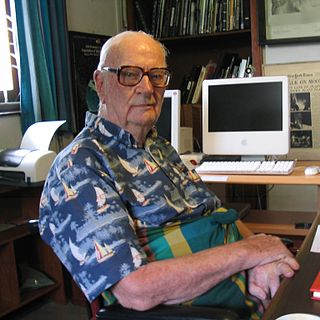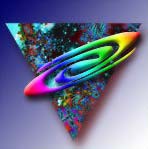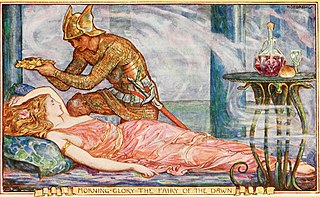
Hard science fiction is a category of science fiction characterized by concern for scientific accuracy and logic. The term was first used in print in 1957 by P. Schuyler Miller in a review of John W. Campbell's Islands of Space in the November issue of Astounding Science Fiction. The complementary term soft science fiction, formed by analogy to hard science fiction, first appeared in the late 1970s. The term is formed by analogy to the popular distinction between the "hard" (natural) and "soft" (social) sciences, although there are examples generally considered as "hard" SF, such as Isaac Asimov's Foundation series, built on mathematical sociology. Science fiction critic Gary Westfahl argues that neither term is part of a rigorous taxonomy; instead they are approximate ways of characterizing stories that reviewers and commentators have found useful.

Poul William Anderson was an American science fiction author from the 1940s until the 21st century. Anderson wrote fantasy novels, historical novels, and short stories. His awards include seven Hugo Awards and three Nebula Awards.

Science fiction is a genre of speculative fiction which typically deals with imaginative and futuristic concepts such as advanced science and technology, space exploration, time travel, parallel universes, extraterrestrial life, sentient artificial intelligence, cybernetics, certain forms of immortality, and the singularity. It has been called the "literature of ideas", and it often explores the potential consequences of scientific, social, and technological innovations.
Science fiction films This is a list of science fiction films organized chronologically. These films have been released to a cinema audience by the commercial film industry and are widely distributed with reviews by reputable critics. This includes silent film–era releases, serial films, and feature-length films. All of the films include core elements of science fiction, but can cross into other genres such as drama, mystery, action, horror, fantasy, and comedy.

Speculative fiction is a broad category of fiction encompassing genres with elements that do not exist in reality, recorded history, nature, or the present universe. Such fiction covers various themes in the context of supernatural, futuristic, and other imaginative realms. The genres under this umbrella category include, but are not limited to, science fiction, fantasy, horror, superhero fiction, alternate history, utopian and dystopian fiction, and supernatural fiction, as well as combinations thereof.

Gordon Rupert Dickson was a Canadian-American science fiction writer. He was inducted into the Science Fiction and Fantasy Hall of Fame in 2000.

Algirdas Jonas "Algis" Budrys was a Lithuanian-American science fiction author, editor, and critic. He was also known under the pen names Frank Mason, Alger Rome, John A. Sentry, William Scarff, and Paul Janvier. He is known for the influential 1960 novel Rogue Moon.

Gardner Raymond Dozois was an American science fiction author and editor. He was the founding editor of The Year's Best Science Fiction anthologies (1984–2018) and was editor of Asimov's Science Fiction magazine (1984–2004), garnering multiple Hugo and Locus Awards for those works almost every year. He also won the Nebula Award for Best Short Story twice. He was inducted to the Science Fiction Hall of Fame on June 25, 2011.
Publication of comic strips and comic books focusing on science fiction became increasingly common during the early 1930s in newspapers published in the United States. They have since spread to many countries around the world.
Keith John Kingston Roberts was an English science fiction author. He began publishing with two stories in the September 1964 issue of Science Fantasy magazine, "Anita" and "Escapism".
Libertarian science fiction is a subgenre of science fiction that focuses on the politics and social order implied by right-libertarian philosophies with an emphasis on individualism and private ownership of the means of production—and in some cases, no state whatsoever.

The Gaylactic Spectrum Awards are given to works of science fiction, fantasy and horror that explore LGBT topics in a positive way. Established in 1998, the awards were initially presented by the Gaylactic Network, with awards first awarded in 1999. In 2002 the awards were given their own organization, the Gaylactic Spectrum Awards Foundation.

A fantasy fiction magazine, or fantasy magazine, is a magazine which publishes primarily fantasy fiction. Not generally included in the category are magazines for children with stories about such characters as Santa Claus. Also not included are adult magazines about sexual fantasy. Many fantasy magazines, in addition to fiction, have other features such as art, cartoons, reviews, or letters from readers. Some fantasy magazines also publish science fiction and horror fiction, so there is not always a clear distinction between a fantasy magazine and a science fiction magazine. For example, Fantastic magazine published almost exclusively science fiction for much of its run.
Space Western is a subgenre of science fiction that uses the themes and tropes of Westerns within science-fiction stories. Subtle influences may include exploration of new, lawless frontiers, while more overt influences may feature literal cowboys in outer space who use rayguns and ride robotic horses. Although initially popular, a strong backlash against perceived hack writing caused the genre to become a subtler influence until the 1980s, when it regained popularity. A further critical reappraisal occurred during the late 1990s to 2000s thanks to the acclaim surrounding Cowboy Bebop and Firefly.
Michael Raymond Donald Ashley is a British bibliographer, author and editor of science fiction, mystery, and fantasy.

Analog Science Fiction and Fact is an American science fiction magazine published under various titles since 1930. Originally titled Astounding Stories of Super-Science, the first issue was dated January 1930, published by William Clayton, and edited by Harry Bates. Clayton went bankrupt in 1933 and the magazine was sold to Street & Smith. The new editor was F. Orlin Tremaine, who soon made Astounding the leading magazine in the nascent pulp science fiction field, publishing well-regarded stories such as Jack Williamson's Legion of Space and John W. Campbell's "Twilight". At the end of 1937, Campbell took over editorial duties under Tremaine's supervision, and the following year Tremaine was let go, giving Campbell more independence. Over the next few years Campbell published many stories that became classics in the field, including Isaac Asimov's Foundation series, A. E. van Vogt's Slan, and several novels and stories by Robert A. Heinlein. The period beginning with Campbell's editorship is often referred to as the Golden Age of Science Fiction.

The Nebula Awards annually recognize the best works of science fiction or fantasy published in the United States. The awards are organized and awarded by the Science Fiction and Fantasy Writers of America (SFWA), a nonprofit association of professional science fiction and fantasy writers. They were first given in 1966 at a ceremony created for the awards, and are given in four categories for different lengths of literary works. A fifth category for film and television episode scripts was given 1974–78 and 2000–09, and a sixth category for game writing was begun in 2018. In 2019 SFWA announced that two awards that were previously run under the same rules but not considered Nebula awards—the Andre Norton Award for Middle Grade and Young Adult Fiction and the Ray Bradbury Award for Outstanding Dramatic Presentation—were to be considered official Nebula awards. The rules governing the Nebula Awards have changed several times during the awards' history, most recently in 2010. The SFWA Nebula Conference, at which the awards are announced and presented, is held each spring in the United States. Locations vary from year to year.

Fantasy is a genre of speculative fiction involving magical elements, typically set in a fictional universe and sometimes inspired by mythology and folklore. Its roots are in oral traditions, which then became fantasy literature and drama. From the twentieth century, it has expanded further into various media, including film, television, graphic novels, manga, animations and video games.

The Hugo Award is an annual literary award for the best science fiction or fantasy works and achievements of the previous year, given at the World Science Fiction Convention and chosen by its members. The Hugo is widely considered the premier award in science fiction. The award is administered by the World Science Fiction Society. It is named after Hugo Gernsback, the founder of the pioneering science fiction magazine Amazing Stories. Hugos were first given in 1953, at the 11th World Science Fiction Convention, and have been awarded every year since 1955.

Space opera is a subgenre of science fiction that emphasizes science fictional space warfare, with use of melodramatic, risk-taking space adventures, relationships, and chivalric romance. Set mainly or entirely in outer space, it features technological and social advancements in faster-than-light travel, futuristic weapons, and sophisticated technology, on a backdrop of galactic empires and interstellar wars with fictional aliens, often in fictional galaxies. The term has no relation to opera music, but is instead a play on the terms "soap opera", a melodramatic television series, and "horse opera", which was coined during the 1930s to indicate a clichéd and formulaic Western film. Space operas emerged in the 1930s and continue to be produced in literature, film, comics, television, video games and board games such as Twilight Imperium.













